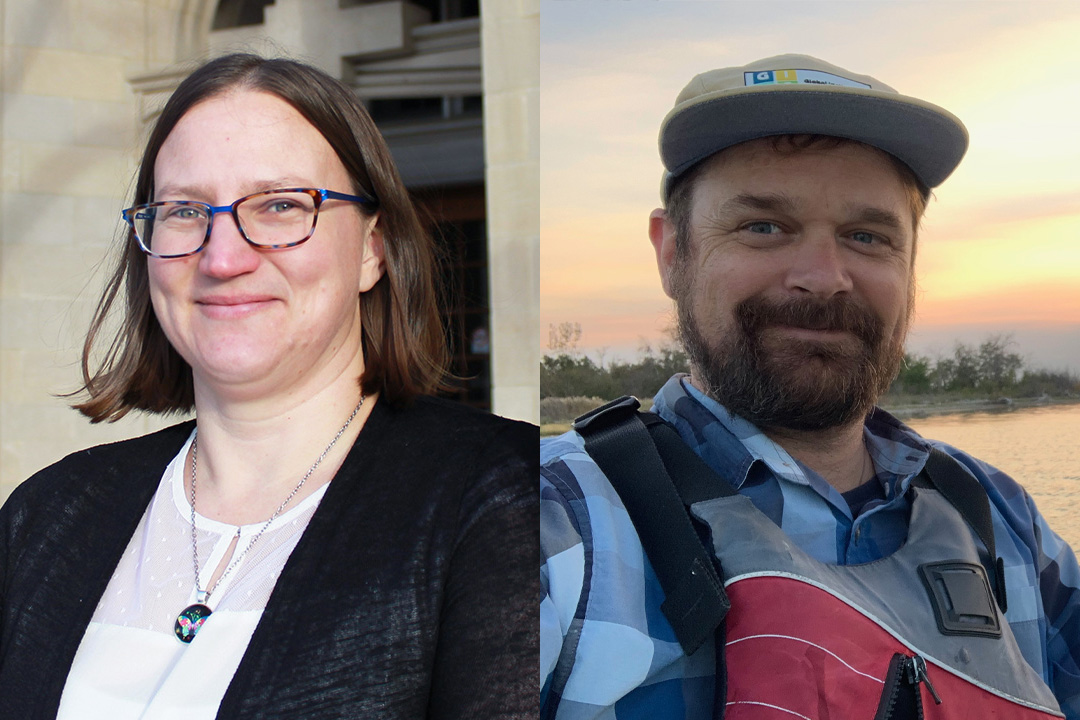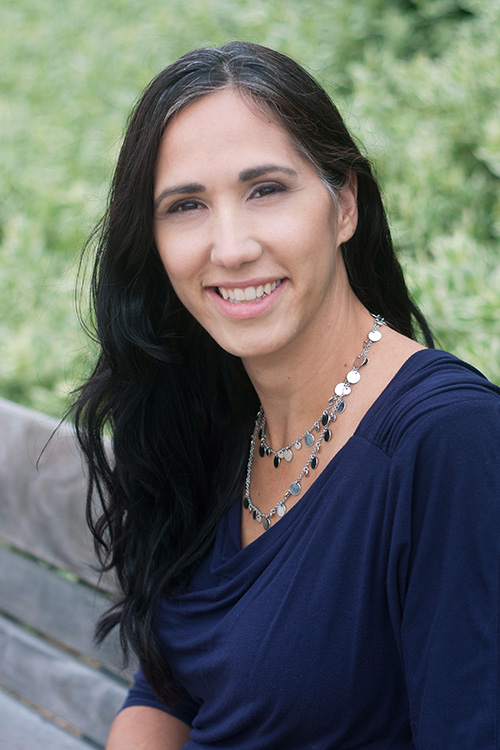
New USask initiative combines applied theatre, environmental science and social science
An international research project spearheaded by a transdisciplinary team at the University of Saskatchewan (USask) will examine options for climate mitigation and adaptation among communities who face water insecurity.
Led by Dr. Lori Bradford (PhD) in the Ron and Jane Graham School of Professional Development in the College of Engineering and Dr. Graham Strickert (PhD) with the School of Environment of Sustainability (SENS), and Global Institute for Water Security at USask, the innovative project received nearly $1.5 million through the New Frontiers In Research Fund (NFRF) International stream intended to support interdisciplinary, “high-risk high-reward" research projects with international collaborators.
The goal of this project is to help put the control of water security solutions firmly in the hands of affected communities by engaging them in design thinking and applied theatre.
“We're trying to flip who controls the climate change adaptation options communities get to choose from,” Bradford said. “Right now, it’s very top-down ... but community members are the experts of what to do in their local environments in times of water crises, and they should be dictating which options are invested in for which scenarios.”
The recently funded project will work with the University of New Hampshire, University of the West of England, Helmholtz Centre for Environmental Research, Technical University of Dresden, and the University of Alberta over the next four years.
The project titled “Climate Collaboratorium: Co-creation of Applied Theatre Decision Labs for Exploring Climate Change Adaptation and Mitigation” will expand current engagement with water-insecure communities. Through this unique applied theatre-based approach, the project will develop strategies to effectively develop solutions for water and climate-related challenges at the often-overlooked community level.
As Strickert puts it, over a decade ago he and his collaborators were communicating research results to involved communities around the Saskatchewan River Basin through town halls and PowerPoint presentations. And when they did so, he was left with the sinking feeling that the presented facts weren’t really connecting with audiences.
Strickert said the expanded project has been an idea he and Bradford have had for more than a decade, after attending plays at USask’s Greystone Theatre and doing an initial small-scale version of this type of work funded by the Social Sciences and Humanities Research Council (SSHRC) from 2013-2015 called “Downstream.” Strickert said he was struck by the power of live theatre to connect and engage an audience, and they began thinking of ways to apply performing arts for challenging conversations about water security and climate change.
“How do ideas get generated in a collaborative space?” Strickert said. “When you put climate adaptation and mitigation options in front of an audience, what do they do with them? And does applied theatre work as a way of testing different options?”
The project will begin with mixed media workshops in water-insecure remote and Indigenous communities to generate ideas on adapting to climate change.
Bradford, a Canada Research Chair in Social and Cultural Decision Making in Engineering Design and a co-lead of USask’s Communities and Sustainability Signature Area of Research, said they wanted to provide supports to those who are too often overlooked and don’t have the luxury of simply leaving their communities if things become difficult.
“Climate change adaptation is often coming from people of privilege, for people of privilege,” she said. “What we’re doing in these performances is we’re centring groups that are targeted for oppression ... we’re thinking about Elders and youth and community groups. Who lives upstream and downstream? Who are the primary water users? Who gets to make decisions?”

Carla Orosz, head of USask's Department of Drama, will lead the design team. Script development will be led by Kenneth T. Williams from the University of Alberta. Together they will help turn data from the workshops into a moving interactive production.
Orosz said this kind of project was an excellent example of combining environmental science, social science and theatre in an effective way by integrating theatre directly within the project.
“Art is more accessible than a research paper ... it’s a thing we interact with almost daily,” she said. “I think when we’re bringing arts and science together this way, we’re helping our general public get that important information out wider.”
Receiving the NFRF funding for this outside-the-box project has confirmed these new ways of thinking and communicating are both desired and necessary to connect meaningfully with communities who know what they need.
“We are very excited about the program. It’s affirming that we’re on the right track, that this work has value,” Strickert said. “Our community partners are at the centre of the effort, and we look forward to continuing work with them.”
Collaborators at USask include researchers with the Ron and Jane Graham School of Professional Development in the College of Engineering, the Department of Drama in the School for the Arts, the School of Environment and Sustainability, and the Global Institute for Water Security.
Together, we will undertake the research the world needs. We invite you to join by supporting critical research at USask.

